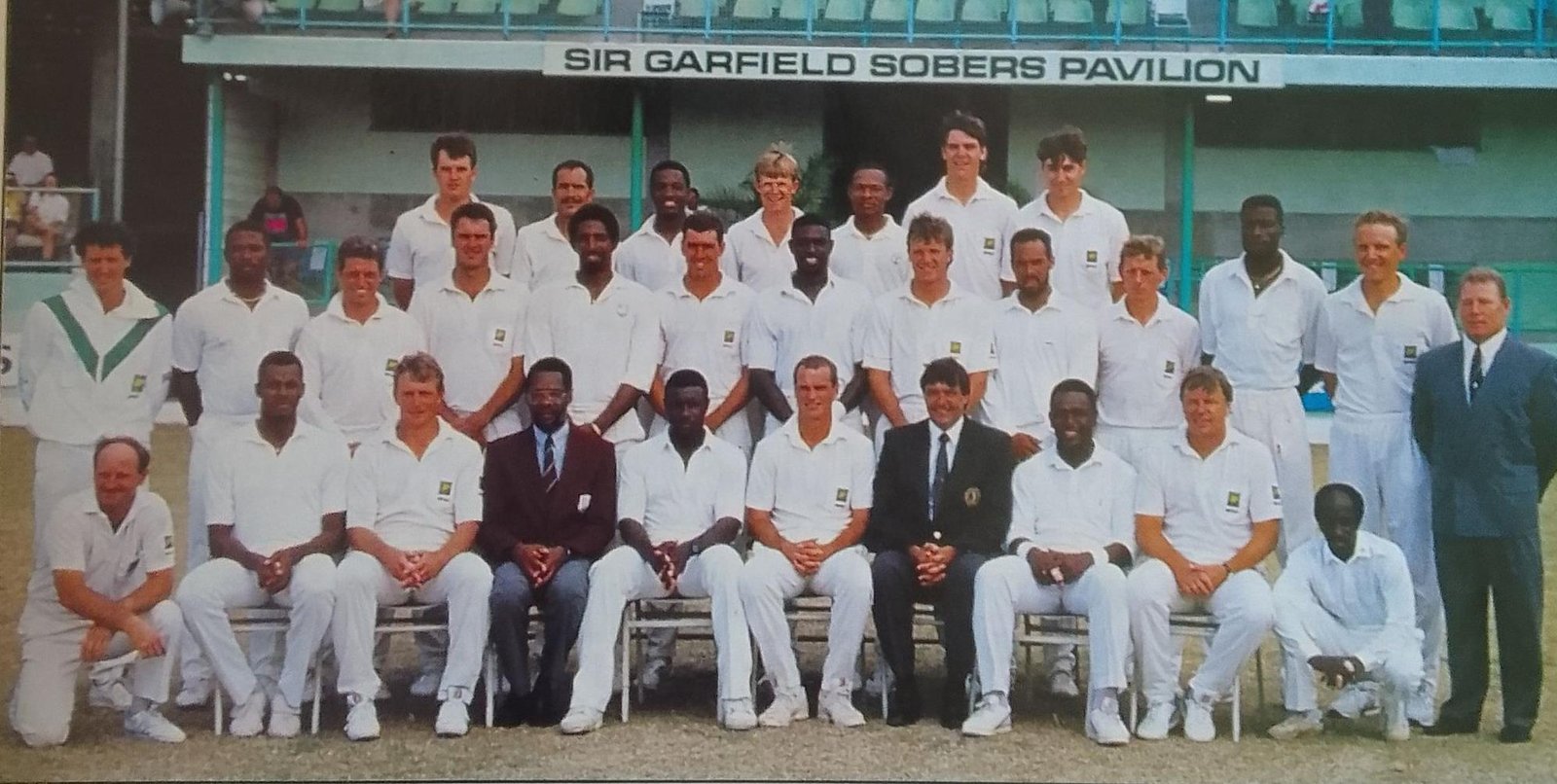South Africa’s return to Test cricket after 22 years was marked by a tense match as fluctuating as any they could have played in their former life. History is in the making at Barbados as West Indies and South Africa players and officials meet for the first time in a test match. They consistently held the initiative but seemed overwhelmed by the vision of victory and, when they twice had it in their grasp, they froze. West Indies vs. South Africa at Barbados, in 1992. South Africa’s dream rudely shattered with bowling heroes Curtly Ambrose 8 for 81 in the match and Courtney Walsh 11-7-8-4 on the last morning.
They began the final day on 122 for two, needing only 79 more to complete their historic triumph, but the dreams of their players, officials, and supporters at Kensington Oval and the millions back home watching live TV coverage in the late afternoon disappeared in the space of an hour and 40 minutes as eight wickets tumbled for 26. Young Allan Donald also took six wickets on this surface and has shown great promise for the future.
Two bowlers who have taken more than 300 Test wickets between them bowled swiftly and accurately, which led to a dramatic fall. Tall Courtney Walsh and Curtly Ambrose were the main destroyers. The pitch is increasingly inclined to produce what Barbadians graphically term ground-eaters, and timid batting. There was another significant, invariable factor: the phenomenal West Indies’ record on the unpretentious little ground on the outskirts of Bridgetown, where they now swept to their eleventh consecutive victory in its 28 Tests. They have only ever lost to England once, which was in 1935 on a treacherous, uncovered, rain-affected surface.
They did so this time without the usual, drum-beating, bugle-blowing support of a packed ground that Vivian Richards had identified as a vital source of inspiration to his teams. The omission of Barbadian fast bowler Andy Cummins from the squad of 13 triggered such an angry response from the public that the largest attendance was 3,000 on the opening day, Easter Saturday, when a full house of 13,000 could be anticipated. It dramatically dwindled, so that fewer than 500 were on hand to see the final drama unfold on the fifth morning.
There was more than the selection of the team; there was the boycott of a Test match by a people to whom the game has always been almost as precious as life itself, but it again highlighted the fragile nature of West Indies cricket. The West Indies Cricket Board of Control (WICBC) estimated losses of £100,000. That is a substantial setback, even if all tour expenses for the South Africans were being paid by the sponsors, British Petroleum of South Africa (BPSA).
